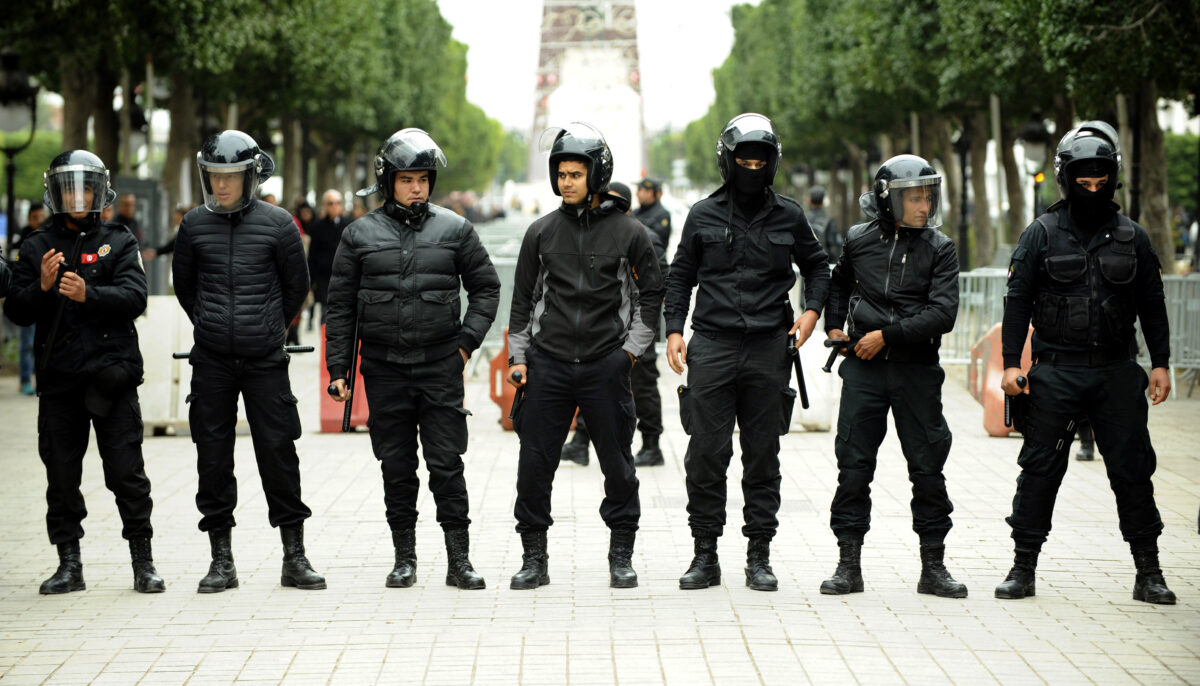How has Tunisia’s ‘success story’ gone awry?
On July 25, Tunisian President Kais Said froze the parliament, dismissed Prime Minister Hichem Mechichi, previously appointed by Said, and announced that he would rule by decree temporarily. The Constitution that came out of the Arab Spring laid out a semi-presidential system in which power is shared, with a Prime Minister who traces his authority to the Parliament. In practice, the division of power has not solved the root problems of the country —namely uneven territorial development and unemployment— but quite the opposite: it has produced an incoherent approach towards the COVID-19 pandemic and the lockdowns, which in its turn has further worsened the economic situation. According to local activists and lawyers, neither human rights nor digital rights are respected in the country, and Tunisia is creeping back towards a police state. In fact, it possibly never stopped being one.
How free is the Internet in Tunisia?
Tunisia has the highest index of Internet freedom (64 out of 100), ranking higher than Lebanon and the rest of the Arabic-speaking countries. Its main ICT regulator is the Tunisian National Telecommunication Authority (INT), which according to ecoi.net “functions with relative independence from the government but lacks the institutional safeguards to protect it against politicization.” Contrary to what happens in Jordan or Syria during the official exams or during the elections or protests in Sudan, Internet shutdowns are not an issue in the country. However, the Tunisian telecommunications market is concentrated in a few entities over which the government has some control, since it owns stakes in two of the country’s three major telecommunication companies, Tunisie Telecom and Orange Tunisie.
“After the revolution, freedom of expression became a reality in Tunisia,” Deputy Regional Director of Amnesty International Amna Guellali told VOA last March. “But we noticed in the last three years an increase in prosecution of bloggers and activists for their online posts.”
Despite the fall of the dictator, and the 2014 progressive Constitution, the police system and some repressive laws are still effective in the country. Tunisian researcher at SMEX Afef Abrougui puts it this way: “The 2014 Constitution protects freedoms and is considered progressive for the region, but at the same time we still have laws like the Code of Telecommunications, which was amended in 2016 but has problematic revisions regarding freedom of expression. In the last couple of years the scenario has worsened.”
Police harassment online
What sparked the revolution back in 2010 was police harassment on Tunisia’s streets: this was the first reason why street vendor Mohammad Bouazizi, unable to make a living, set himself on fire. A decade after the Arab spring, the security sector is still stuck in authoritarian tendencies. In 2015, the Tunisian security agencies unsuccessfully pushed to promulgate the draft law no 25/2015, allegedly to prevent the assault of the armed forces, which in practice would have restricted freedom of speech. According to Abrougui, the draft law aimed to “punish online speech that is deemed ‘denigrating’ towards the police, and exempt security forces from criminal liability when they use excessive force.” Thanks to the pressure of activists, law 25/2015 was never passed, but as Abrougui explains, there have been attempts to revive it in 2017, 2018 and 2020. In February 2018, two of the most representative police force unions besieged the Ben Arous court during an investigation of torture charges against some officers, a scenario that was repeated in October 2020.
Aside from the law 25/2015, there are already code articles that overprotect the security forces in the country. The Military Justice Code Article 91 prescribes a prison sentence of up to three years for insults against the military institution, its flag, dignity, and morale. Penal Code Article 125 punishes those convicted of “insulting public officers during the performance of their duties” with one year in jail and a fine, and Penal Code Article 128 states that anyone found guilty of “accusing, without proof, a public agent of violating the law” can face up to two years in jail.
The draft laws that threatens freedom of speech
In February 2021, activist Myriam Bribri posted a comment on a video of a police officer assaulting a young man: soon afterwards, she received an illegal search warrant on account of “offending others on social media,” considered a violation of the Code of Telecommunications. The blogger Emna Chargui was sentenced to six months of prison for imitating the format of a Quranic verse on Facebook. LGTBI activist Rania Amdouni went to a police station to file a complaint about the harassment she faced from the police, only to be arrested instead.
Also in February 2021, police unions posted messages threatening activists and lawyers on Facebook. At least 50 bloggers that posted online content critical of the government during the protests commemorating a decade since the Arab Spring were also arrested?In most cases, Tunisian activists are prosecuted by virtue of the above mentioned Code of Telecommunications.
“The police claim that Facebook pages don’t belong to them,” explains researcher Abrougui, “but it still shows the intimidation practices of many police officers.” As Abrougui puts it, when it comes to repressing those who criticize the government or the status quo online there is a pattern: “They call you for an investigation and they give you a sentence or just a suspended sentence, which is like a warning.” Several internet users received prison sentences for posting purportedly fake news about COVID-19the coronavirus pandemic. The COVID pandemic has resulted in a rhetoric of war and “journalists and bloggers who question the authorities’ response and measures to the novel coronavirus can face attempts to silence them under the pretext that they lack ‘patriotism’ or ‘expertise’,” states Global Voices’ writer Saoussen Ben Cheikh.
Moving forward or crawling backwards?
Human and digital rights have been deteriorating in Tunisia since the last elections, specifically under Prime Minister Mechichi and currently with President Said’s power grab on July 25, after which police officers stormed Al-Jazeera office in violation of press freedom. But for Abrougui there is room for hope: “Tunisians are aware that with the revolution, we gained the freedom to talk. The way the new generation protests is more creative; they seem less afraid. I wonder what this means for Tunisia’s future.”



